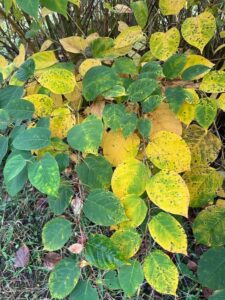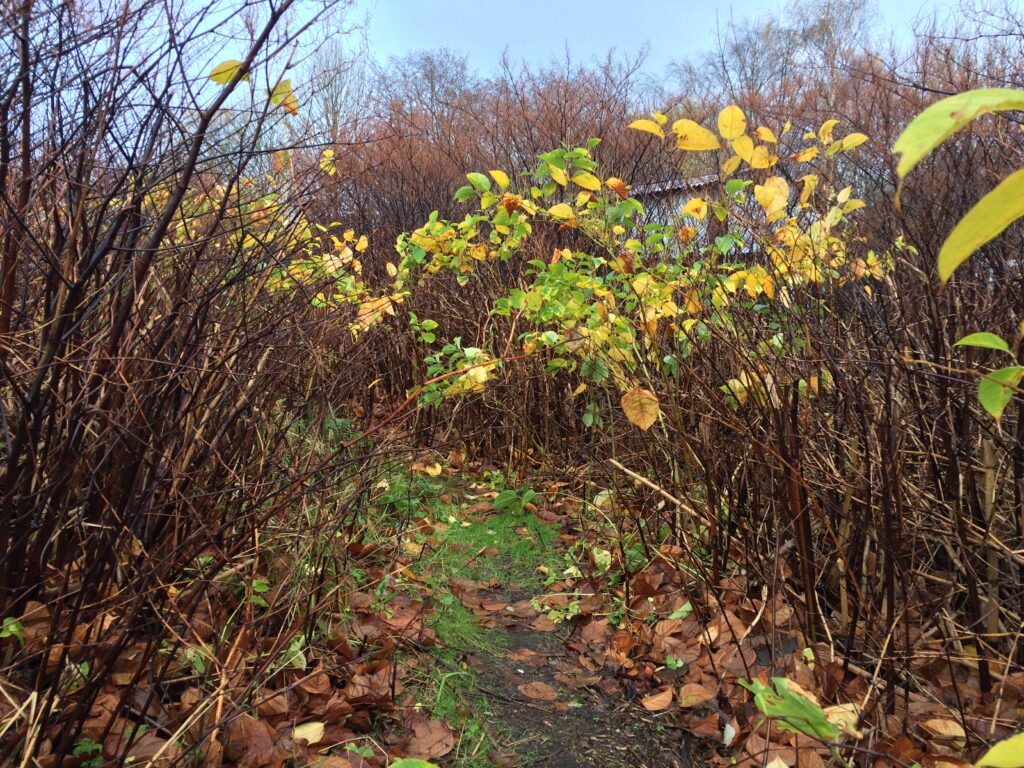
All the latest news and latest sector information from INNSA, our members and partners.
Sign up to receive the latest newsletter.

Friday, 21 June 2024 13:39

This question has been circulating, and festering over the last few years.
If you expect this article to “explore” the question and come to a caveated, mealy-mouthed conclusion about how “any plant can be a problem” and how “you should consult a specialist for any plant-related problem”, then let’s put that to bed right away.

Thursday, 30 November 2023 14:02

So, insurance backed guarantees are brilliant, right?
You get protection if the company providing your Japanese knotweed remediation programme goes bust, on top of the contractor’s written guarantee – which now often stretches to a full ten years.
So why am I bitching about them *again*?

Thursday, 09 November 2023 13:38

Up and down the UK, leaves are currently turning yellow on many plants and trees, and it is particularly striking the on the Japanese knotweed stands. In the autumn, as part of the natural process of senescence, which is the aging and eventual shedding of leaves, this process is primarily triggered by changes in the environment, especially the decreasing amount of daylight and cooler temperatures that occur in Autumn months. The relationship between the position of the sun and the yellowing of leaves is mainly due to the “photoperiod”, or the length of daylight.

Monday, 30 October 2023 15:18

Last month, the IPBES Invasive Alien Species Assessment was released to widespread (and deserved) acclaim.
This detailed, thorough report from the snappily-named ‘Intergovernmental Science-Policy Platform on Biodiversity and Ecosystem Services’ runs to over 50 pages, contains a wealth of information and comes endorsed by senior figures at the United Nations and the Convention on Biological Diversity. The report has been well-received by environmental groups and forward-thinking media outlets across the world.
The authors have also made significant efforts to reach out and inform interested parties worldwide, including providing informative presentations to those dealing with invasive species in the UK.

Wednesday, 27 September 2023 15:35
There are a variety of terms used to describe the mixtures used to kill weeds: “plant protection product”, “herbicide”, “pesticide” – these words could all refer to the same bottle of Roundup sold over the counter at any one of hundreds or thousands of shops across the UK – or the professional products that INNSA members use to combat invasive species.
Personally, I am not afraid of any of these terms. Having studied chemistry at university and as a qualified pesticides advisor and a health and safety professional, I have a reasonable understanding of what these things are and how they work – although, of course, this is a field which a great many professionals have dedicated lifetimes of work to understanding, developing our collective knowledge and the regulation that underpins safe usage.